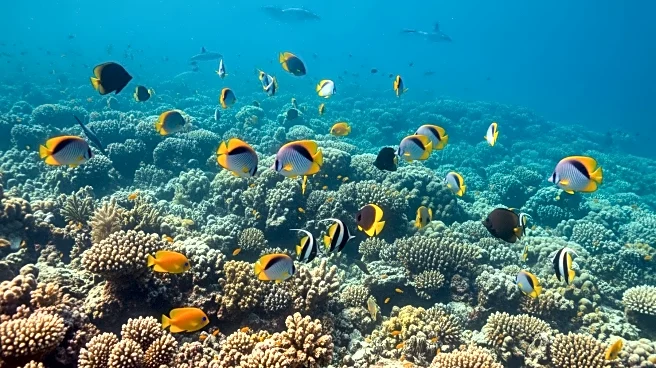What's Happening?
Researchers from the University of Colorado Boulder have published a study in Conservation Letters highlighting a significant decline in the lifespan of common dolphins in the North Atlantic. The study reveals that female dolphins are living an average
of seven years less than they did in 1997, posing a threat to both the species and the ocean ecosystems they sustain. The Bay of Biscay, a key winter gathering spot for dolphins, is also one of Europe's busiest fishing zones, leading to thousands of dolphin deaths annually due to bycatch. The research team used stranded dolphins to track survival trends, finding that the average lifespan of female dolphins fell from 24 years in the late 1990s to 17 years by 2019.
Why It's Important?
The decline in dolphin lifespan is a critical issue as dolphins play a vital role in maintaining the balance of marine ecosystems. As top predators, they help regulate fish populations, preventing overconsumption of plankton and vegetation. The study's findings underscore the need for better management of dolphin populations to prevent further decline and potential extinction. The French government's annual fishing ban in the Bay of Biscay is a step towards protection, but adjusting the timing based on dolphin migration patterns could enhance its effectiveness. Understanding these patterns is crucial for strengthening marine protection policies globally.
What's Next?
The study suggests that more effective policy changes are needed to protect dolphins and other cetaceans facing similar pressures. Adjusting fishing bans to align with dolphin migration patterns could improve protection efforts. The research highlights the importance of swift, informed action to prevent further decline in dolphin populations and maintain the health of ocean ecosystems.
Beyond the Headlines
The study emphasizes the ethical responsibility of humans to protect marine life and ecosystems. The decline in dolphin populations could lead to broader ecological consequences, including the collapse of marine food chains. The research calls for conscious decisions to safeguard both living and non-living components of the environment.














